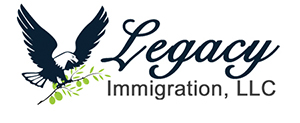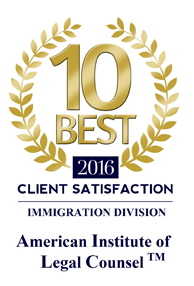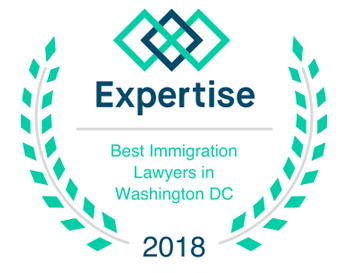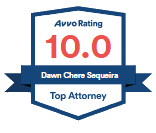EB-2 National Interest Waiver

Here at Legacy Immigration, one of our specialties is the EB-2 National Interest Waiver (NIW). Our secret tool is our attorney’s strong background in the biological sciences, which enables her to interpret an applicant’s scientific research due to her understanding of anatomy, molecular biology, physiology, microbiology, chemistry, and physics and craft an application that is compliant with the regulations. It is our firm’s combination of science and the law that enables us to prepare and file strong petitions.
Since regulations do not define “national interest,” our focus is to prove that the foreign national’s “past record justifies projections of future benefits to the national interest,” which is what U.S. Citizenship and Immigration Services (USCIS) examines.
We are proud to admit that we maintain a 100% approval rate without issuance of a Request for Evidence. We attribute much of our success to our amazing clients who work closely with us in providing the supporting documents that we request as well as working with us to prepare letters of recommendation. We attribute the remaining portion of our success to preparing tailor-made applications with every piece prepared from scratch.
The second employment-based preference (EB-2) allows foreign nationalist with either advanced degrees or foreign nationals of exceptional ability whose work is in the national interested to apply for permanent resident status.
One benefit of the EB-2 category is that there is no backlog of visa numbers exception for nationals of China and India. So nationals of Mexico, Philippines, and all other countries are able to apply for their green card (concurrently with employment authorization and advance parole) when they file their I-140. For nationals of India, the backlog is shorter than the EB-3 backlog.
A second benefit of the EB-2 category is that the legal burden to win a case is lower than the EB-1 standard. So for nationals of Mexico, Philippines, and all other countries they can obtain the same benefit of applying for their green card at the same time as the I-140 without having to prove the EB-1 standard.
The “waiver” portion applies to the labor certification process. For the EB-2 classification, an immigrant petition, Form I-140, is filed with a labor certification. The only exceptions to this rule are: 1) a request for precertification using Schedule A; or 2) a request for a national interest waiver. A major benefit is that applicants can “self-petition,” which means that the requirements of a job offer, an employer sponsor, and a labor certification do not apply. So the applicant would sign the I-140.
The only drawback is that there is no way to “premium process” (obtain a decision within 15-calendar days) a national interest waiver case. The workaround is that if the priority date is current, applicants can file their green card application, along with Form I-765, Application for Employment Authorization. This will allow applicants to continue to be lawfully employed until a decision on their pending national interest waiver case is made.
Frequently Asked Questions
The regulations require those seeking classification as professionals with advanced degrees to have a degree above a bachelor’s, or, a bachelor’s degree plus five years of “progressive” post-baccalaureate work experience in a profession. The key is proving the employment was “progressive” as determined by primary evidence (appointment letters, increase in salary, etc.)
There is an unresolved disagreement between USCIS and the Department of Labor over how many years of work experience equal a master’s degree. To equal a master’s degree, USCIS’ regulations require five years of work experience in addition to a bachelor’s degree. To the contrary, if it would accept a master’s degree, The Department of Labor will not accept a bachelor’s degree plus five years of work experience (because it exceeds some occupations’ SVP).
For example, what if an employer listed as its minimal requirement: “an M.S. or a Bachelor’s Degree (or academic equivalent) plus 5 years of progressive experience in the job offered or related experience.”
For a librarian, the requirement of a Master’s degree would probably be acceptable since it equates to 4 years of SVP (level 7). But the alternative criteria of BS+5 would yield 7 years of SVP (level 8). Since level 8 is above level 7, the minimum requirement, the employer would have to prove “business necessity” to require a BS+5. So as you can see, the Labor Certification process is extremely complicated, problematic, time-consuming and expensive (since the labor market must be tested). The waiver allows beneficiaries to skip this step.
Advanced Degree applicants must have an offer of employment and must be granted a labor certification unless requesting a waiver of the labor certification by showing that the applicant’s admission is in the national interest.
There are two ways for a foreign national to meet the degree requirement for EB-2 classification: 1) he or she must have a U.S> master’s degree or higher, or a foreign degree that has been evaluated as the equivalent of a U.S. master’s degree; or 2) a U.S. bachelor’s degree or foreign equivalent plus 5 years of “progressive experience” after having obtained a bachelor’s degree.
If a doctoral degree is required by the occupation, USCIS’ regulations provide that the foreign national must have a U.S. or foreign-equivalent degree. Work experience in this case is not acceptable.
No. USCIS will not accept an EB-2 petition filed for a foreign national who has a three-year bachelor’s degree, even if it is combined with a post-graduate diploma and 5 years of progressive work experience.
Most likely, yes, since the second degree qualified you for the position.
Like Advanced Degree applicants, Exceptional Ability (EA) applicants must have an offer of employment and must be granted a labor certification unless requesting a waiver of the labor certification by showing that the applicant’s admission is in the national interest.
Second, the EA classification is limited by USCIS regulations to those working in the “sciences, arts, or business.”
Third, the regulations require EA applicants to present evidence that meets 3 out of 6 criteria (or prove that the criteria is inappropriate):
<ul>
<li>An official academic record showing that the foreign national has a degree, diploma, certificate, or similar award from a college, university, school, or other institution of learning relating to the area of exceptional ability;</li>
<li>Evidence in the form of letter(s) from current or former employer(s) showing that the foreign national has at least ten years of full-time experience in the occupation for which he or she is being sought;</li>
<li>A license to practice the profession or certification for a particular profession or occupation;</li>
<li>Evidence that the foreign national has commanded a salary, or other remuneration for services, which demonstrates exceptional ability;</li>
<li>Evidence of membership in professional associates; or</li>
<li>Evidence of recognition for achievements and significant contributions to the industry or field by peers, governmental entities, or professional or business organizations.</li>
</ul>
Both professionals with advanced degrees and exceptional ability can seek a waiver of the job offer requirement as well as a waiver of the labor certification requirement. A national interest waiver (NIW) application includes Form I-140, ETA 750B, supporting documents, and endorsement letters from experts proving that the foreign national’s admission is worthy of a waiver.
Since “national interest” is not defined by the regulations, USCIS relies on a 1998 Administrative Appeals Office (AAO) precedent decision that lists a three-prong test for deciding a national interest waiver. See Matter of New York State Department of Transportation, 22 I&N Dec. 215 (Comm’r 1998) (“NYSDOT”). These three prongs are outlined below (See USCIS’ NIW link here).
- Prove Substantial intrinsic merit. Here, it is important for you to focus on the proposed employment. USCIS will look at your documents to determine whether the importance of your proposed work is readily apparent.
Some of the evidence you may submit to demonstrate that you plan on working in the United States in an area of substantial intrinsic merit includes: 1)A letter from you and/or your company describing the work and its importance; 2) Articles or other published media discussing your and/or your company’s work and its importance; 3) Letters from experts in the field attesting to your work and its importance; and 4) Testimonial letters should include information about the expert’s own credentials, such as a C.V. - Proposed impact is national in scope. While your employment may be limited to a particular geographic area, you must establish a benefit to more than a particular region of the country. Under the second prong of the NYSDOT test, you must demonstrate that the proposed benefit to be provided will be national in scope. USCIS will give due consideration to entrepreneurs who establish that their entrepreneurial enterprise will serve the national interest to a substantially greater degree than the work of others in the same field.Some of the evidence you may submit to demonstrate that the proposed impact of your work is national in scope includes: 1) Published articles or media reports; 2) Copies of contracts, agreements, or licenses showing the scope and impact; 3) Letters from current and former employers discussing your work and its national importance; 4) Letters from experts in the field attesting to your work and its national importance; and 5) Testimonial letters should include information about the expert’s own credentials.
- Waiving the labor certification requirement would benefit the national interests of the United States. This is usually the hardest factor to prove and is usually the reason that pro se applicants get denied. The purpose of the labor certification process is to protect the national interests of the United States by ensuring that the wages and working conditions of U.S. workers employed in the same field would not be adversely affected.
So, when deciding whether to grant a waiver of the labor certification requirement, USCIS looks at all of the evidence to see whether the national benefits you offer are so great that they outweigh the national interests inherent in the labor certification process. This means that your evidence must show that you serve the national interest to a substantially greater extent than the majority of your colleagues and that you have a degree of influence on your field that distinguishes you from your colleagues. The national interest evaluation is prospective. This means you must show that you have a past record of specific prior achievements that indicate future benefits to the national interests of the United States.
Demonstrating that your business enterprise will create jobs for U.S. workers or otherwise enhance the welfare of the United States may also qualify you for an NIW. However, you still have to show that the creation of jobs domestically for U.S. workers may serve the national interest to a substantially greater degree than the work of others in the same field.
Some of the evidence you may submit to demonstrate that waiving the labor certification requirement would benefit the national interests of the United States includes: 1) Copies of published articles that cite or otherwise recognize your achievements; 2) Copies of grants or other funding you received listing the amount and terms of the grants, as well as the principal and co-investigators; 3) Documents showing how your work is being implemented by others, for example: a) Contracts with companies using your or your company’s products; b) Documents showing licensed technology that you and/or your company invented or co-invented, and how that licensed technology is being used by others; and/or c) Patents or licenses awarded to you and/or your company with documents showing how they are being used and why they are significant to your field.
In its decisions, USCIS has approved “national interest” cases where the foreign national’s work accomplished the following:
- Improved U.S. economy
- Improved wages and working conditions of U.S. workers
- Improved education and training programs for U.S. children and under-qualified workers
- Improved healthcare
- Provided more affordable housing for young and/or older, poor U.S. residents
- Improved the environment of the U.S. and making more productive use of natural resources
- Request from an interested U.S. government agency
Anyone performing scientific research already meets two of the three criteria: the “substantial intrinsic merit” and “nationwide impact” requirements are met by virtue of the fact that research mostly always impacts healthcare, which has a national impact.
Unlike with scientific researcher, USCIS greatly scrutinizes the “national scope” of artists, even those who travel to perform. USCIS rationalizes that artists, by virtue of their career, travel to perform. Therefore, it is not enough to show an artist’s performance schedule. One of our clients performed as part of a world-renowned performing arts center. She performed in the symphony’s orchestra and traveled nationally and internationally. However, she also taught youths music appreciation across the country. It was this combination that helped us prove her benefit was “national in scope.”
Similarly, a physician who treats patients in a local or even regional area will usually not be sufficient to prove “national in scope.” If the physician either traveled to various hospitals across the country or simultaneously conducted research (as many MD./Ph.Ds do), it would make for a much stronger case.
No, we received an approval for an applicant who did not have a single publication (and therefore did not have any citations to any work), was not a member of professional association, did not have any speaking engagements or conference presentations (or had his work presented), did not have any patents, did not have articles written about him in major publications or media coverage, did not conduct any peer reviews, and had never received any awards (or grants). However, the applicant did possess specialized knowledge in a very unique type of machinery that was involved in studies that impact health care (e.g safer cigarettes). Another approval was for a post-doctoral student who had only two (2) publications.
Yes and no. If the waiver was based on an applicant’s contribution to an industry, which could be utilized by another employer, it is still valid. For example, if your NIW approval was based on your research of heart valves, then such biomedical research could be utilized by another private company, research institution, or government entity.
However, if your NIW was based on your work with a particular employer, the petition would no longer be valid if the employer went out of business or no longer wished to hire the applicant.
In 1999, Congress created a special statutory national interest waiver specifically for clinical physicians. Under this law, physicians serving in an underserved area may self-petition in the EB-2 category for a national interest waiver, but the normal national interest waiver rules do not apply.
To qualify, the following requirements must be met: 1) the physician must agree to work full-time in a health shortage area or for the Veterans Administration (VA); 2) a federal agency or state public health department has to determine that the work is in the public interest; and 3) the physician must work full-time for a total of 5 years in authorized status (not including time spent in J-1 status_ before he or she is eligible to adjust status (or obtain an immigrant visa).
Immigrant petitions and adjustment of status applications can be filed prior to the date the 5-year service is completed if an immigrant visa number is available, including during the 3-year period of H-1B employment for the physician receiving the waiver.
A foreign national who has an approved I-140 and NIW, may file an adjustment
of status application even if he or she has not completed the 3- or 5- year medical service requirement. However, USCIS may not approve the adjustment of status until the physician has fulfilled the 3- or 5-year requirement. The physician also must submit further documentation to USCIS after the 2nd and 6th anniversaries of the I-140 approval to show that he or she is still meeting or has met the 5-year requirements.
Contact Us
Please give us a call to discuss your case. In-person consultations are available Monday through Friday from 8:00 am to 8:00 pm and Saturdays from 8:00 am to 5:00 pm. Please call our office at 301-529-1912 , text us, submit a request for consultation form below.
Please be sure to provide a timeline of events along with details of your entire immigration history.









